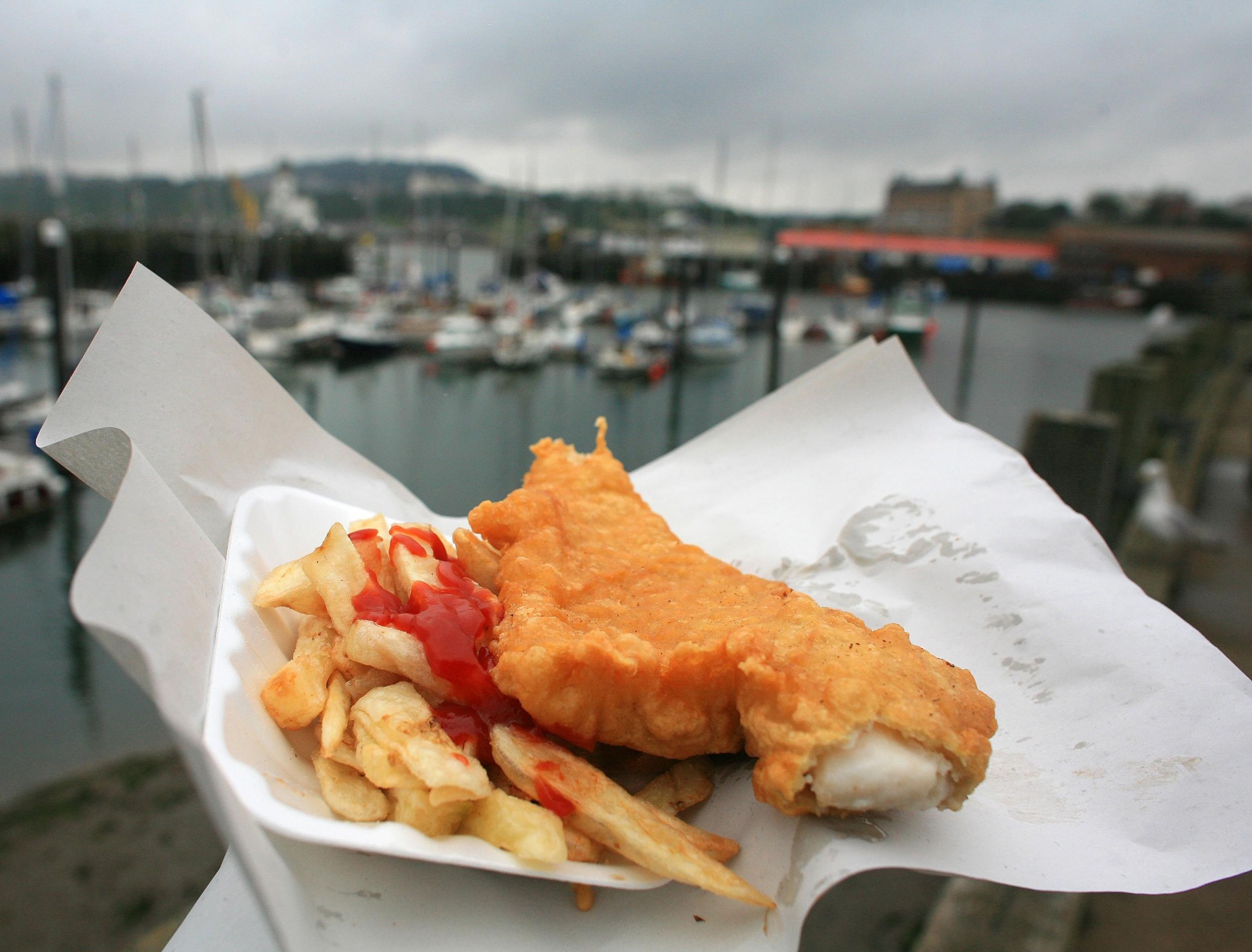Price of fish and chips could go up amid trawler dispute
Fishmongers fear cod and haddock prices could rise due to limited availability of Icelandic fish

The price of fish and chips could rise in the coming weeks as a strike by Icelandic fishermen threatens the UK's supply of fresh cod and haddock.
The dispute, which centres on Icelandic trawlermen wanting a larger share of the value of their catch, is now hitting the UK fishing industry, with Grimsby hit particularly hard by reduced stock levels.
Grimsby fish market, Britain's biggest importer of fresh Icelandic fish, has been forced to reduce one fifth of its workforce, with staff cut from 32 to 26.
The price of whole cod is £2.80 to £3 per kilogram with haddock at £2.20 to £3.30 per kg and on Tuesday just 514 boxes of fish were offered for auction, which was described as the “least supply ever”.
Now there are fears cod and haddock prices could rise due to limited availability of Icelandic fish.
“It is a question of how long the strike goes on and the longer it goes on, the worse it gets,” said Martyn Boyers, chief executive of the group that operates Grimsby fish market.
“Iceland is one of the main suppliers of fish into the UK. It has hit our business particularly badly because we do rely on Icelandic fish.
“In due course there will be a knock-on effect as there will be less fish available and if the demand stays the same then generally the price will go up.”
Two thirds of the fish sold at Grimsby fish market comes from Iceland and stock levels are about 50 per cent down.
“We have had to lay people off, which is unfortunate for them as it is not their fault,” Mr Boyers said.
“We have been closely linked to Iceland for so long we are not able to switch as quickly to get other supplies.
“I wouldn't say the industry is going to implode but there is a big change in the way fish comes to market and is sourced.”
Mr Boyers said the Iceland government had to resolve the crisis with the trawlermen before prices rose in the UK.
“There is a reluctance to increase prices. I think it is going to be difficult and everyone is trying to cut their costs,” he said.
“But if the raw material has gone up in price and there is nothing you can do about it.
“There does appear to be an impasse in Iceland with the negotiations and there will be a requirement in the UK for people to pay more money.
“There is nothing we can do. I have spoken to the UK fisheries minister before and I have spoken to the Iceland Ambassador to the UK personally and they want the dispute resolved as much as we do.
“It is very much an Icelandic thing and there is nothing we can do.”
Press Association
Join our commenting forum
Join thought-provoking conversations, follow other Independent readers and see their replies
Comments
Bookmark popover
Removed from bookmarks